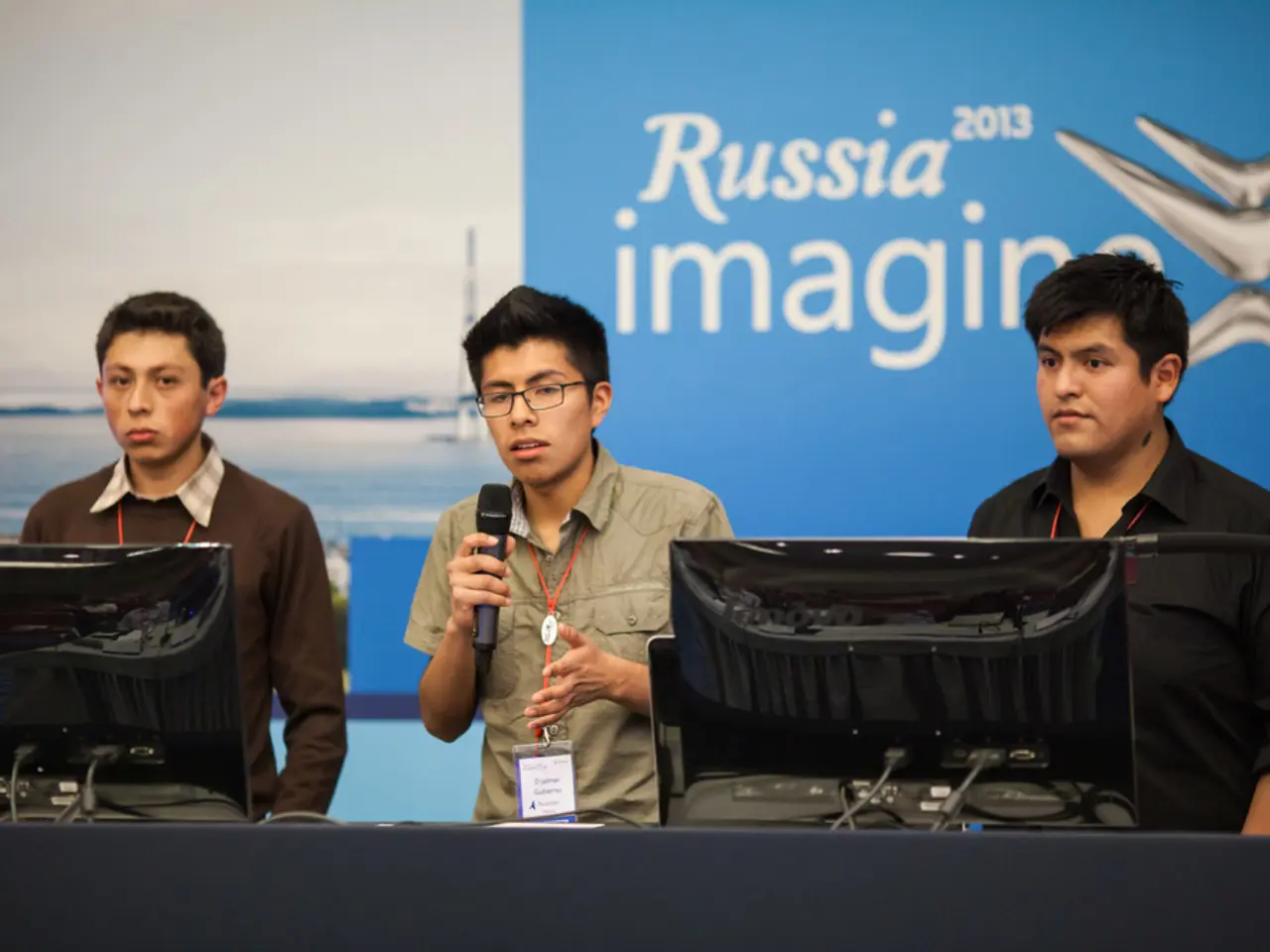Minister Wildberger defends Siemens and SAP against EU AI criticisms
In a bid to establish Europe as a global leader in artificial intelligence, the European Commission has proposed the construction of up to five AI gigafactories across the continent [1]. These state-of-the-art facilities will serve as large-scale computing and data storage centres, housing tens of thousands of advanced AI chips designed for the development, training, and deployment of next-generation AI models [2].
The proposed AI gigafactories will have four times more AI chips than current AI factories, aiming to provide the necessary computing power for innovation, foster collaboration between startups, researchers, and industry, and ensure technological sovereignty through public-private partnerships [3]. This initiative is expected to boost Europe's AI ecosystem, create jobs, and support critical sectors such as healthcare, climate science, and sustainable development [4].
However, the EU's plans have faced reservations from established tech companies like Siemens and SAP. These concerns revolve around the complex regulatory environment, high costs and investment risks, potential inefficiencies in coordination, and strategic doubts about achieving technological sovereignty [3].
German Minister of Digital Affairs, Karsten Wildberger, a CDU politician and former CEO of Ceconomy, has defended the EU's plans against these criticisms. He emphasized the importance of developing Europe's own base models to avoid dependence and criticized the EU's AI directive as 'too bloated and too complex' [5]. Wildberger also expressed concerns about the extremely bureaucratic implementation of the AI directive.
Despite these reservations, Wildberger considers the EU's planned AI data centers, referred to as AI gigafactories, to be crucial. Each gigafactory will be equipped with around 100,000 AI chips, and the cost of building these facilities is expected to be billions of euros [5].
Wildberger, a proponent of innovation, believes that breakthroughs in innovation come from those who have the courage to develop something new. He emphasized that groundbreaking innovations often come from new companies, and the AI gigafactories are intended to catalyze economic growth and enhance competitiveness [6].
The fall review by the federal government aims to make the AI directive more innovation-friendly, addressing some of the concerns raised by established tech companies. The necessary infrastructure, according to Wildberger, should be in place to foster innovation and help Europe keep pace in the global AI race [7].
References:
[1] European Commission. (2021). Commission proposes to support the construction of up to five AI on-premises data centres in Europe. Retrieved from https://ec.europa.eu/commission/presscorner/detail/en/IP_21_5280
[2] European Commission. (2021). Commission adopts world's first AI regulation to make AI trustworthy and to boost growth. Retrieved from https://ec.europa.eu/commission/presscorner/detail/en/IP_21_4894
[3] European Parliament. (2021). AI Act: MEPs back rules to make AI systems trustworthy and to protect EU citizens. Retrieved from https://www.europarl.europa.eu/news/en/headlines/politics/20210617STO34117/ai-act-meps-back-rules-to-make-ai-systems-trustworthy-and-to-protect-eu-citizens
[4] European Commission. (2021). Commission proposes new rules for Artificial Intelligence. Retrieved from https://ec.europa.eu/info/strategy/priorities-2019-2024/europe-fit-digital-age/artificial-intelligence/proposal-regulation-laying-down-rules-ai-regulation_en
[5] Deutsche Welle. (2021). Germany's digital minister criticizes AI directive as 'too bloated and too complex'. Retrieved from https://www.dw.com/en/germanys-digital-minister-criticizes-ai-directive-as-too-bloated-and-too-complex/a-58773706
[6] Reuters. (2021). Germany's digital minister says Europe needs to invest in AI to stay competitive. Retrieved from https://www.reuters.com/business/germany-digital-minister-says-europe-needs-invest-ai-stay-competitive-2021-06-28/
[7] Politico. (2021). Germany's digital minister calls for more innovation-friendly AI rules. Retrieved from https://www.politico.eu/newsletter/brussels-playbook/germany-digital-minister-calls-for-more-innovation-friendly-ai-rules/
- The proposed AI gigafactories, intended to boost Europe's AI ecosystem and enhance competitiveness, will house tens of thousands of advanced AI chips and cost billions of euros, as defended by German Minister of Digital Affairs, Karsten Wildberger.
- These AI gigafactories, equipped with around 100,000 AI chips each, are crucial for fostering collaboration between startups, researchers, and industry, as claimed by Wildberger, a proponent of innovation.
- Despite reservations from established tech companies like Siemens and SAP, the EU's plans for AI gigafactories aim to ensure technological sovereignty through public-private partnerships and provide the necessary computing power for innovation in fields such as healthcare, climate science, and sustainable development.




